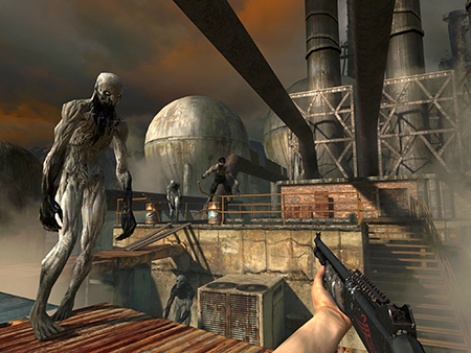In a conference bursting at the seams with quality talks, it's a genuine accolade that Scattered Entertainment's Ben Cousins presentation on the ethics of monetisation models was one of our GDC highlights.
The core of the talk, titled Is Your Business Model Evil? The Moral Maze of the New Games Business, was a discussion of the antipathy surrounding the free-to-play model and the misconception that it's built around exploiting whales via untoward tactics.
But, though Cousins' delivery was as potent and passionate as ever, his stance on the 'anti-F2P establishment' and general snobbery within the industry posed as many questions as it did serve up answers.
We chased Cousins down after GDC to take him up on few points, all for your viewing pleasure:
Pocket Gamer: During your talk, you labeled The Establishment - gamers from the pre-2007 era - as the ones responsible for branding free-to-play as unethical and 'evil'. Who are the main members of The Establishment as you see them?
Ben Cousins: We are talking people in the millions. The establishment characterises an attitude - one of literal conservatism, a desire to conserve things as they were pre-Facebook, pre-free-to-play, pre-App Store.
Anyone who has expressed, for instance that Facebook games aren't 'real games', or wished that more people play Tearaway than Candy Crush Saga, would be expressing conservative establishment ideas. Think of the 'disco sucks' movement as analogous.
Ben Cousins

Previous examples of conservative attitudes in the industry have been for instance in the late 90s and early 2000s, that FPS games could never work on consoles due to the superiority of the mouse ir keyboard control system, or the snobbery the PC games industry had towards the console business in the 1980s as outlined in this interview with Mark Cerny at Kotaku.
"When I went to the first [computer game developers conference], I was working to get Sonic the Hedgehog 2 out the door. Technically, I was the manager of the group, and when people would ask what I did I had to say I was between projects, because console games were held in such low esteem in those days."
Are there any specific examples you can point to where The Establishment attacked free-to-play games?
Aside from a huge pile of tweets and forum posts created every day by average consumers...
Ian Bogost's piece at The Baffler, Mike Rose's piece on whales at Gamasutra, and John Walker's piece on Candy Crush at Rock, Paper, Shotgun.
In your talk, you said The Establishment was pre-programmed to reject the F2P model because of its 'other-ness' and popularity as a primarily Asian business model. How do you defend this assertion given the immense popularity of Japanese and Korean games among the hardcore members of The Establishment?
The Asian geographical otherness I was referring to was primarily Chinese and Korean, along with Nordic, younger and from a non-games background.
I'm not aware of any Korean games commonly played by people with these attitudes. I'm not aware of many non-free-to-play Korean games!
In the scorecard you used in the talk, you labeled games with a minimum purchase price of under $20 to be 'unethical' - how and why did you arrive at this number?
I actually mentioned this in my talk. According to my research, $20 is the average monthly allowance for a 15 year old in the USA.
This is why I also selected $240 as my upper limit as it equates to an annual allowance for this age group.
Isn't it a bit confusing to call crowdfunding a monetisation model - as, traditionally, those funds are used to cover the cost of game development and do not equate to profits for developers?
The vast majority of game projects aren't profitable, and the first thing you do with any revenue is use it to try to recoup development costs or debt.
So the vast majority of revenue going to developers through any business model is on average covering the cost of game development.
Ben Cousins' The Drowning was a F2P bastion
Having said that, I mentioned up front that my topic was the ethical treatment of consumers, so the intended use of the funds is not as important as the way consumers feel about what they get for their money.
One of the biggest surprises during your talk was that the free-with-ads - or Flappy Bird - model came out on top as the most ethical model, but this model is rarely used in the mobile space. Is it possible to be an ethical paragon and make money in mobile or do certain concessions need to be made?
Free with ads is really common in the mobile space. It's just not commonly at the upper reaches of the charts where people pay attention.

My daughter's iPad is full of fairly cheaply produced ad supported games and software toys. These products are probably generating a profit, so it is possible to make money following that model.
At the conclusion of your talk, you urged everyone to "come together as an industry and stop infighting" - does that mean you see a market for traditional product or console games in the years ahead?
Sure! While mobile, PC and free-to-play are going to end up grabbing the most audience and marketshare - if they haven't already - I see no reason why we won't have traditional products and console games available in the years ahead.
Whether the console model is sustainable for another generation beyond this, and how big the market is for up-front purchase type games, those are the big questions.





















